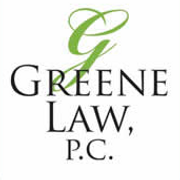
If you’re thinking about filing for bankruptcy, it’s important to know that there are a number of different chapters under which you can file. Most individuals choose a Chapter 7, 13, or 11 bankruptcy filing. While it’s best to consult a bankruptcy attorney to find out which type is best for you, below is an overview of the differences between these chapters.
Chapter 7
Often referred to as ordinary, straight, or liquidation bankruptcy, Chapter 7 is a common filing. It’s designed to give debtors a clean financial slate by liquidating their assets to partially pay back their creditors. While the law allows for some exemptions, most of the items you own will be sold. Once they’re liquidated, and your creditors are paid back, any remaining unsecured debts will be discharged.
In order to qualify for Chapter 7, you must pass a means test proving you do not have enough disposable income to repay your debts. There are some debts that cannot be discharged by Chapter 7, including alimony, child support, taxes, and some student loans.
Chapter 13
 This type of bankruptcy is intended to help debtors with a regular income. It allows them to reorganize their debts so they can pay off what they owe over a three to five year period.
This type of bankruptcy is intended to help debtors with a regular income. It allows them to reorganize their debts so they can pay off what they owe over a three to five year period.
After working with a bankruptcy attorney to file for Chapter 13, the court will appoint a trustee to help you come up with a manageable payment plan. Once the plan is approved by the court, you’ll begin making your new monthly payments.
To be eligible for Chapter 13, you must have a steady income and up-to-date tax filings. You also cannot have unsecured debts exceeding $250,000 and secured debts exceeding $750,000. Bankruptcy attorneys often use this chapter to help clients in danger of losing their homes to foreclosure. Once you file, all foreclosure proceedings are halted, giving you time to bring your mortgage payments up to date.
Chapter 11
Similar to Chapter 13, Chapter 11 gives debtors the opportunity to restructure their debts so they can pay them off over time. The difference is, there are no limits placed on the amount of money a debtor can owe. If your debt is higher than the maximum allowed for Chapter 13, your bankruptcy attorney might recommend this option.
If you’re considering filing for bankruptcy, Greene Law PC in Farmington, CT, can help. The attorneys at this firm will help you determine which type is right for you and help guide you through the process to become debt-free. Visit their website to learn more or call (860) 676-1336 to set up an appointment today.
About the Business
Have a question? Ask the experts!
Send your question

